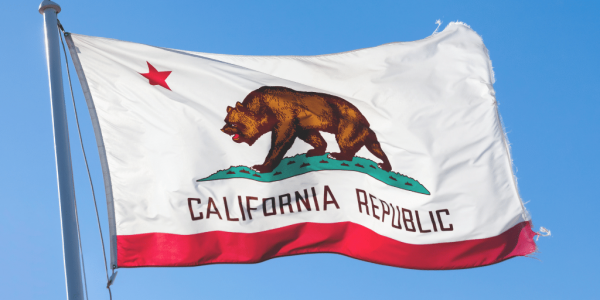Californians Watch Battle Over Online Sports Betting
Daily television ads are bombarding Californians to choose a side on an upcoming vote on two online sports gambling propositions: 26 and 27.
The former favors the tribes. If passed, it would allow “on-site sports wagering at only privately operated horse-racing tracks in four specified counties,” with the tribes in full control of the wagering. It also would expand the table games permitted in tribal casinos, with roulette wheels and craps tables being installed.
Proposition 27 opens the floodgates for online and mobile sports wagering. It would allow the likes of FanDuel, DraftKings, and BetMGM to apply for licenses. As noted by Bill King of Sports Business Journal, any sports book that wants to do business in California must be licensed in at least 10 other states. Clearly, Indian interests are currently battling hard against this option as they could lose sovereignty over gambling in California.
California is the most populous state in the country and the passing of Prop 27 would generate billions in tax revenue.
Regardless, the voters will have a chance to cast a ballot on both propositions. If California wants to stay with the times — and to capture billions that otherwise are being wagered legally across state lines or illegally from Siskiyou County to San Diego and all points in between — the voters will embrace both Proposition 26 and Proposition 27.
One of the hot button topics related to the gambling proposition is to provide funding to alleviate homelessness. In a fact checking series, the question of HOW MUCH will actually go to the issue is still in question.
There are two propositions that both address some forms of sports wagering and only one that addresses online gaming: That is Prop 27. The providing hundreds of millions of dollars in funding to address homelessness and the support of tribes like the person in the videos — what Proposition 27 does is it takes some of the taxes from the online sports wagering online gaming. It enables 85% of those funds to go to homelessness and mental health issues and 15% of it goes to a newly created fund called the Tribal Economic Trust Fund. That trust fund would be for money to be distributed to non-gaming tribes.
So, when he says that this supports tribes, the answer is it will support some tribes, tribes like his. The hundreds of millions of dollars in funding to address homelessness really depends on how much the total pool is that the state collects from the online gaming operations. There are some complex funding and tax provisions in this measure. The measure is over 60 pages long and it has a number of different provisions. It allows for credits to be given to some of the online gaming operators.
So how much we actually will see of the amounts that the gaming companies are bringing in to go into homelessness and to tribal economic support is not clear.














